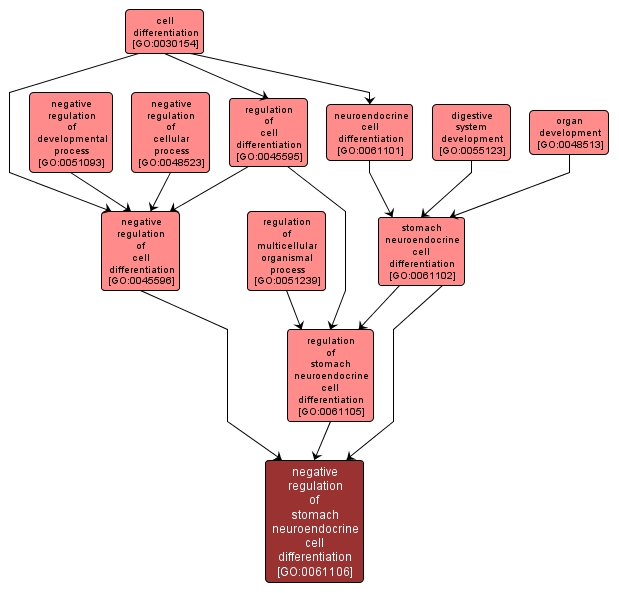GO TERM SUMMARY
|
| Name: |
negative regulation of stomach neuroendocrine cell differentiation |
| Acc: |
GO:0061106 |
| Aspect: |
Biological Process |
| Desc: |
Any process that decreases the rate, frequency or extent of the differentiation of a neuroendocrine cell in the stomach. |
|

|
INTERACTIVE GO GRAPH
|














